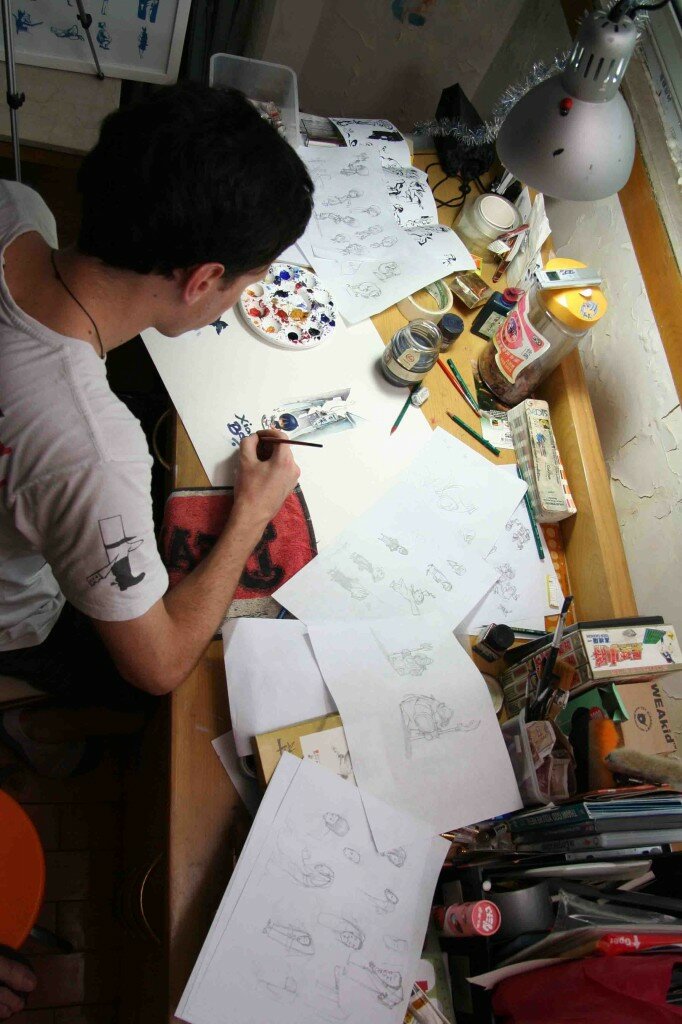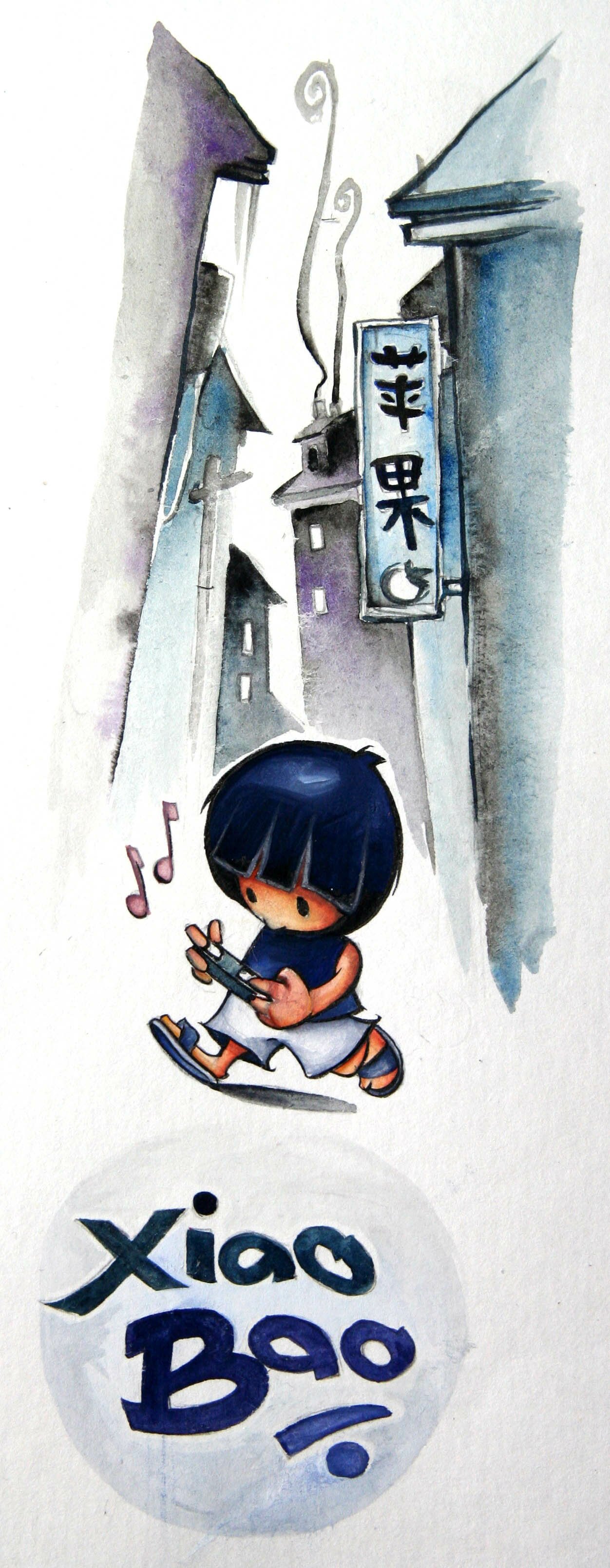:: in light of the role Web 2.0 and online communications played in the recent unrest in Xinjiang, I thought it would be interesting to take a look at where and how China’s ethnic minorities congregate via online community in China. A bit of context for unknowing readers: China has 56 officially recognized ethic groups. 55 of them are minorities, with the majority ethnic group, Han, accounting for 90+% of China’s population.
The scale and diversity of the Chinese Internet means that members of China’s 55 ethnic minorities looking for online communities that reflect their offline culture have a wide variety of options available to them. Although there are occasional problems, as in the case of Uyghur discussion forums suspended after the Urumqi riots, or when community websites of groups in China’s more “restive” regions sometimes have to deal with the firm hand of government authorities, the Chinese Internet still has a wealth of resources for people who want to meet others like themselves online, or who want to converse in their own language.
Below is a snapshot of some online communities for five different minority groups in China: Uyghur, Tibetan, Mongolian, Hakka, and Manchu. Non-Chinese languages might require installing special fonts or viewing pages in a particular web browser, but discussion on many of the linked sites is conducted in standard Chinese script.
Uyghur ::
The most visible forum for Uyghurs in Xinjiang was the Uighur Online BBS discussion forum (维吾尔在线), run by economist Ilham Tohti. After the recent Urumqi riots, the website was blocked because of its use as a communication tool for rioters, and Ilham was detained by police. It’s still available through a proxy, though. It has active sub-forums for Uyghur issues, ethnic thought, and Han society, and even one for Hui people in predominantly Uyghur areas. On the newsy side of things, sub-boards range from current events to Uyghur issues in the foreign media. Translation between traditional ethnic languages, Mandarin Chinese, and English is a featured activity, with assignments handed out to interested members in exchange for system credits. A companion Uyghur-language BBS has a wide range of posts written in Latin script. My Uyghur is a Xinjiang-registered portal written in Uyghur Arabic script, and hosts BBS discussion forums in both Uyghur Arabic and in Chinese. Interestingly, many of the discussion threads on the Chinese forum are written in a mix of Chinese characters and Latin-script Uyghur. The My Uyghur website has an associated blog group on Netease with around one thousand members who post about Uyghur culture, faith, and customs, mostly in Chinese.
Tibetan ::
Tibet Culture, a Gansu-registered blog host and discussion forum, is an active community for Chinese-language discussion about Tibet and Tibetans. The BBS discussion forum has a range of sub-forums including Tibetan culture, literature, and Buddhist texts, but the blog section is far more interesting. pulls down several dozen blog posts a day ranging from art to t-shirts to current events like the Urumqi riots to Tibetan Buddhism. Most of the blog posts are in Chinese; occasionally Tibetan-language posts will be put up as image files. The government-run Tibet Information Center also hosts a blog service that covers many of the same topics; judging from the tag cloud, education is a major focus, as is the Dalai Lama, who takes a major drubbing from the site’s bloggers. Displaying Tibetan script is still an issue for many web browsers today, so Tibetan-language websites are doubly impenetrable to outsiders (you may have to try some of the links listed here in a number of different browsers to get them to render properly). ChodMe is a Tibetan-language blog host associated with the news portal TibetCM. Discussion-forum-wise, the Tibetan Youth BBS gets a fair amount of traffic.
Mongolian ::
The Mongolian Youth forum is a bilingual BBS that hosts discussion in both Chinese and Mongolian. On the Chinese side, the sub-board for international Mongol issues is quite popular and focuses largely on the country of Mongolia, with threads like this look at the army. The Mongolian-language side has less traffic, and the most popular sub-board seems to be about the environment and customs. The Mongolian Teacher Forum describes its mission to be “saving ethnic education” (拯救民族教育). The forum is mostly dedicated to pedagogical topics, with discussions over ethnicity-related issues quite common. In one re-posted article, the author questions why Inner Mongolia has no real Mongolian university: “Why can’t the Mongolians, who once founded the mightiest empire of the world, even build a Mongolian university in their own autonomous region?” Many of the active posters are teachers. For example, “Chasna”, a female Mongolian elementary school teacher has 541 posts. In one post, she talks about her experiences teaching ethics to young students. “Taliinhan” (塔林汗), which means “friend of the prairie” in Mongolian, is a forum about environmental protection issues in Inner Mongolia. A large proportion of discussion is dedicated to laws and regulations. The “Taliinhan environmental protection association,” an NGO founded in 2004, is the force behind the forum. Taliinhan seeks to “protect the prairie and the interest of the farmers within the boundary of law,” and one of their offline activities is the distribution of law texts to Mongolian farmers. QQ (57162485) and MSN () groups are available to further facilitate group communication. Sites in Mongolian occasionally give users a choice between a Cyrillic version (used more in outer Mongolia) and vertical Mongolian script (which has only become practical since the introduction of Windows Vista, and which still generally requires the use of the Internet Explorer browser). This BBS discussion forum, affiliated with the Mongolian News Portal of China, uses software from Inner Mongolian IT company Menksoft. Other solutions exist: The MGLBlog host uses Flash to display Mongol script.
Hakka ::
Although it arguably should be, Hakka (客家) is not officially recognized as one of China’s 56 ethnic Groups. Hakka speakers are classified as Han Chinese, and they live mainly in Guangdong, Jiangxi, and Fujian. The lack of official recognition rankles some young people, who discuss various propositions for a “Hakka Province” or a “Hakka Municipality” (or even, tongue-in-cheek, a “Hakka Kingdom”). A thread on the Hakka Online BBS discussion forum argues in favor of a Hakka homeland, which one commenter suggests establishing around Meizhou, Guangdong. Earlier this year, Hakka Online launched its first annual pop music competition, which solicited original videos for Hakka-language songs (most of them from Taiwan). Another website, Hakka Forum, receives a couple dozen posts a day and has message boards for topics ranging from Hakka folk music and films to famous Hakka people, including an analysis of the family tree of Sun Yat-sen, who was born into a Hakka family. Hakka identity is a factor here, too: the discussion forum carries the tag-line, “The 56 ethnicities are like 56 flowers. One flower is the Han, and it has eight petals. One of these petals is the Hakka.” Hakka musicians and political figures are also featured on China Hakka Hall. The Hakka Sky BBS is a relatively active forum with about a thousand comments a day, most of them in the Hakka News and Cultural Encyclopedia boards. As Hakka people are spread across a large part of China, there are numerous smaller, local forums like Guangzhou Hakka, and Meizhou Hakka, which launched just this past April. Recent posts of interest include a student’s account of a trip to Yongding in Fujian, where he enjoyed ancient streets and earthen buildings that have been granted World Cultural Heritage status. Another post is about the “brewing” (酿) of food in Hakka culture, in this case, how to make brewed bitter melon. Interestingly, despite the unique language that defines part of Hakka identity, most of the conversation on all of these Hakka forums is conducted in Mandarin, except in cases where the finer points of Hakka itself are under discussion.
Manchu ::
Although a sizable group of people identify themselves as Manchu in China, the language and culture has practically vanished. Consequently, online Manchu communities feature discussions of traditional Manchu culture and introductory language materials from a learner’s perspective. Solonju, for example, has an online Manchu textbook and a BBS forum for discussion in both Chinese and Romanized Manchu. The Manchus website and BBS discussion forum, registered in Beijing, is written almost entirely in Chinese (except for a title written in Manchu and Jurchen script). One of the popular sub-boards is “Root finding,” where netizens can trace their genealogy based on their family name and the area they once lived. Other active boards include discussion of Manchu history and “Modern Manchu,” which consists of notifications for current Manchu cultural activities. Similarly, in the iManchu discussion forums, the hottest sub-board is devoted to the discussion of ethnic history. A Manchu blog group on Sohu has moderately active discussions of topics like Manchu script and traditional culture in a modern setting. The Internet also provides a number of Manchu language tools. A Manchu script creator converts Romanized Manchu into vertical Manchu script, and Enenggi hosts a Manchu word of the day and an online Manchu dictionary. Although the Manchu people of the northeast may have lost their language, the Xibe people of Xinjiang, who are related to the Manchu but are classified as an entirely separate ethnic group, retain a language that is quite close to classical Manchu. Xibe Web has a low-traffic BBS discussion forum where posts are made in Romanized Xibe. The website Xibe Culture has a similar Xibe-language BBS discussion forum.
// AjS
[Friday 5 is the product of my work at Edelman Digital (China). Link here for the full Friday 5 archive. If you'd like to be added to the bilingual (English & Chinese) Friday 5 email distribution list, please send me an email at: adam DOT schokora AT edelman DOT com.]












































